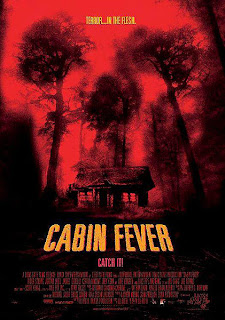Malick's faux-profound "To the Wonder" is like watching beautiful paint dry
To the Wonder (2013)
112 min., rated R.
"To the Wonder" is only the sixth feature film in filmmaker Terrence Malick's forty-year-long career. Known for taking several years in between projects, Malick has seemingly rushed his latest to the screen only two years after the alternately challenging, pretentious, baffling, beautiful, and altogether polarizing tone poem "The Tree of Life." Daunting or not, this largely incoherent mood opus might be Malick in his purest form — a minimalistic plot, existential themes, philosophical whispered voice-overs, impressionistic cinematography of nature, and classical music. One will be hard-pressed to find a more gorgeous-looking film this year, but to watch "To the Wonder" is to have visual beauty and poetry wash over you and not feel a real sense of meaning or purpose. It's like a cure for insomnia.
The bare-bones story follows Neil (Ben Affleck) and Marina (Olga Kurylenko), having met in France and being in the infatuation stage of love. She takes a vow to stay with him and he invites her, along with her daughter (Tatiana Chiline), to the States and live in his Oklahoma home. (Not to give the film too much of a reality check, but wouldn't Neil become tired of Marina backwards running, skipping, twirling, and fooling around playfully after fifteen minutes? At one point, she even dances around with a rooster in her hands.) When Neil goes to work as an inspector for an oil company, that leaves Marina to feel alone in this foreign land, until her visa expires and she returns home. Neil doesn't really stop her; is he afraid of commitment? While Marina is gone, Neil soon runs into an ex-girlfriend, rancher Jane (Rachel McAdams), and they fall in love again. Can these moments last forever? Then, Father Quintana (Javier Bardem), an unhappy Roman Catholic priest who has lost touch with God, enters the story, so he can sermonize about a man loving his wife ("Love is not only a feeling; you show love to love") and minister to the sick and disabled.
From the start, "To the Wonder" feels like a travelogue on a train, through the French monastery at Mont-Saint-Michel, and along the beach. Neil and Marina also do a lot of artful walking, embracing, and canoodling in scenic landscapes and sun-dappled bedrooms, so much, in fact, that one almost expects the film to turn into a "J'Adore Dior" perfume commercial. Once again, Malick's longtime collaborator Emmanuel Lubezki delivers exquisitely dreamy and picturesque cinematography. Almost every frame feels gloriously vast, open and heavenly, from a mudflat to golden wheat fields, as the camera fluidly roams and circles the talents. Many frames are so stunning that they could be copied and pasted onto a computer wallpaper to just admire and get lost in the beauty.
Otherwise, dialogue is so sparse that, despite so much voice-over spoken in whispers and muted outbursts of anger and temper tantrums, this could be a silent film that ponders the unknowable Big Questions. As with most of Malick's films, they feel personally made for himself. His latest feels even more so, as he withholds more than he shares with his audience (such as never disclosing the characters' names outside of Tatiana). With "To the Wonder," he strives for transcendence and a spiritual rumination on the meaning of love, longing, and the human condition. If only it weren't so opaque and emotionally uninvolving and, frankly, boring.
Malick calls on his actors to do mostly a lot of walking and sensuous postering that one has to wonder if there was much of a screenplay. Kurylenko is an object of poise and conveys a sense of passion as the needy, childlike Marina, but it's not always easy to get a grip on her character. She does get to speak in voice-over, posing questions like, "What is this love that loves us?" and "How had hate come to take the place of love?" Looking uncomfortable at first, Affleck isn't given a lot to do, except stand around as an object and just "be." Even for the short time she's on screen, McAdams brings a sense of heartbreak. Since Malick seems to form his films not until he gets to the editing bay, it's too bad Rachel Weisz, Jessica Chastain, Amanda Peet, Barry Pepper, and Michael Sheen's scenes were all left on the cutting room floor.
Make no mistake, cinema has progressed since the classic narrative form that imagery can often do all the talking, and Malick has proven himself gifted at this before. But, this time around, there is very little to latch onto. A film like this can have all the visual wonder in the world, but to what end? Naysayers of "Prometheus" who claimed the film maddeningly didn't answer the Big Questions should check out "To the Wonder." Perhaps this film's meaning could deepen with multiple viewings, but who really needs another 112 minutes of faux-profound, emotionally distant prettiness? It sure is pretty, though.
Grade: C









Comments
Post a Comment